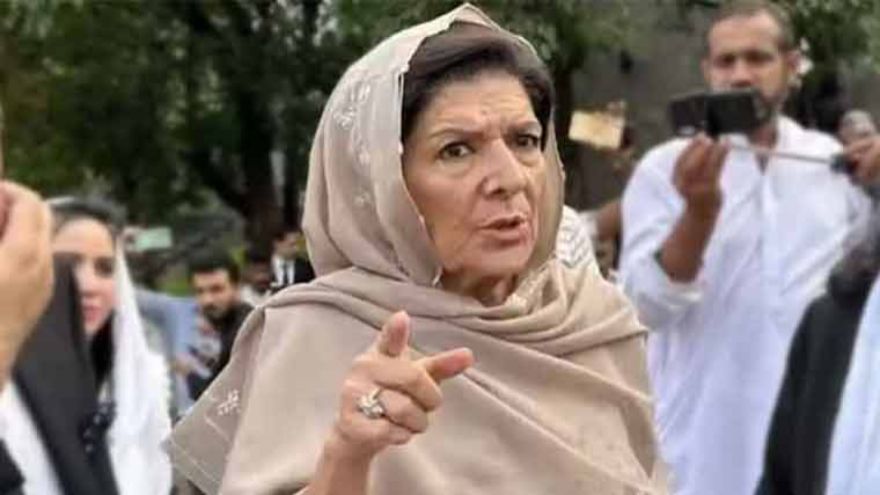Aleema Khan, the sister of Pakistan Tehreek-e-Insaf (PTI) founder Imran Khan, has strongly condemned the arrest of her two sons, Shahrez Khan and Shershah Khan, in cases linked to the May 9 violence. Speaking alongside lawyer Salman Akram Raja on Friday, she alleged that security personnel surrounded her son’s car to detain him and insisted that her family would not be intimidated by what she described as pressure tactics aimed at silencing her brother’s political message.
The arrests have proceeded through the legal system, with Shahrez Azeem produced before Lahore’s anti-terrorism court a day after his detention. Police requested a 30-day physical remand, arguing he was newly nominated in a supplementary statement related to the Jinnah House attack case and that his mobile phone needed to be recovered. The special judge granted an eight-day physical remand instead. Defence counsel Salman Akram Raja questioned the timing, pointing out that Shahrez’s name had never appeared in over 1,500 court readings of the statement over 27 months, calling the arrest following Imran Khan’s bail a act of “clear malafide.”
Aleema Khan detailed the circumstances, stating her sons, husband, and daughter-in-law were together when plainclothes men and police officials detained Shershah Khan near their home, after having earlier arrested Shahrez. She framed the events as part of a wider attempt to block Imran Khan’s message, declaring, “We decided long ago that we will not bow to pressure.” She added that her family was prepared to make sacrifices in what she termed the struggle for “real freedom,” drawing parallels to Pakistan’s creation.
In a further escalation, Aleema Khan revealed that 80 cases have already been registered against her personally and acknowledged the possibility of her own arrest at any time. Meanwhile, lawyer Salman Akram Raja presented a defence, stating that Shahrez, an international-level sportsman, was in Chitral at the time of the violence and had frequently travelled abroad without issue. He called for his immediate release, citing previous court rulings that delayed nominations suggest bad faith, as police maintained he was only wanted in the Jinnah House case.














